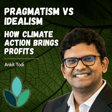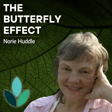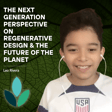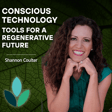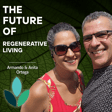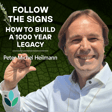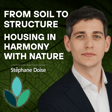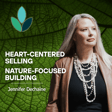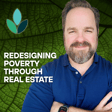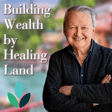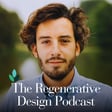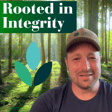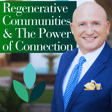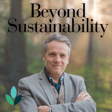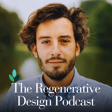
Ep. 19 with Louis De Jaeger - Food Forests, Future Landscapes, and a World Beyond Lawns
“If we want to change something on the planet, we first have to change our mindsets. And that starts with understanding the connection between humans and nature.”
Sustainable landscapes, edible forests, and a vision for a greener planet—this episode dives deep into the intersection of nature, gardens, and environment to lay the groundwork for a sustainable future. Our guest paints an optimistic yet urgent picture of how we can regenerate ecosystems and reshape the way we coexist with nature. Discussing topics from permaculture to the transformative power of invasive plants, he illustrates how regenerative practices can not only heal the land but also inspire communities and empower individuals. With a mix of hard science, personal anecdotes, and a vision for celebrating nature, this episode challenges traditional thinking and encourages listeners to take actionable steps toward a harmonious future. It’s not just about planting trees—it’s about planting hope and tasting the fruits of a better tomorrow.
Louis De Jaeger is a visionary landscape architect and the founder of The Comencalist, a firm dedicated to future-proof landscape design. With a passion for sustainable living, Louis co-founded the Food Forest Institute and the Bye Bye Grass campaign, aiming to replace traditional lawns with thriving, biodiverse alternatives. He’s also a documentary filmmaker, with works like The Food Forest and the upcoming Eat More Trees, combining his love for storytelling and nature. A public speaker, author, and advocate for regenerative agriculture, Louis is on a mission to inspire, regenerate, and celebrate our planet through innovative approaches to design and education.
Learn more and connect:
1. Fred Pierce’s Book: The New Wild: Why Invasive Species Will Be Nature’s Salvation
https://www.goodreads.com/book/show/22373317-the-new-wild
2. Documentary: The Food Forest
3. Documentary: Eat More Trees
4. Louis De Jaeger’s Website:
Explore these valuable resources to further your journey in regenerative design:
Discover more about Regenerative design at Paulownia Landscape Architects. https://www.paulownia-la.com/.
Dive into the Twelve Laws of Nature and unlock the secrets of harmonizing with our planet at https://www.12lawsofnature.com/.
Fulfill your garden aspirations with expert guidance from the Garden of Your Dreams masterclass at https://www.gardenofyourdreams.com/.
Ready to take actionable steps towards your dream garden? Book a complimentary 30-minute training session with Matthieu for immediate results: https://calendly.com/garden-of-your-dreams.
